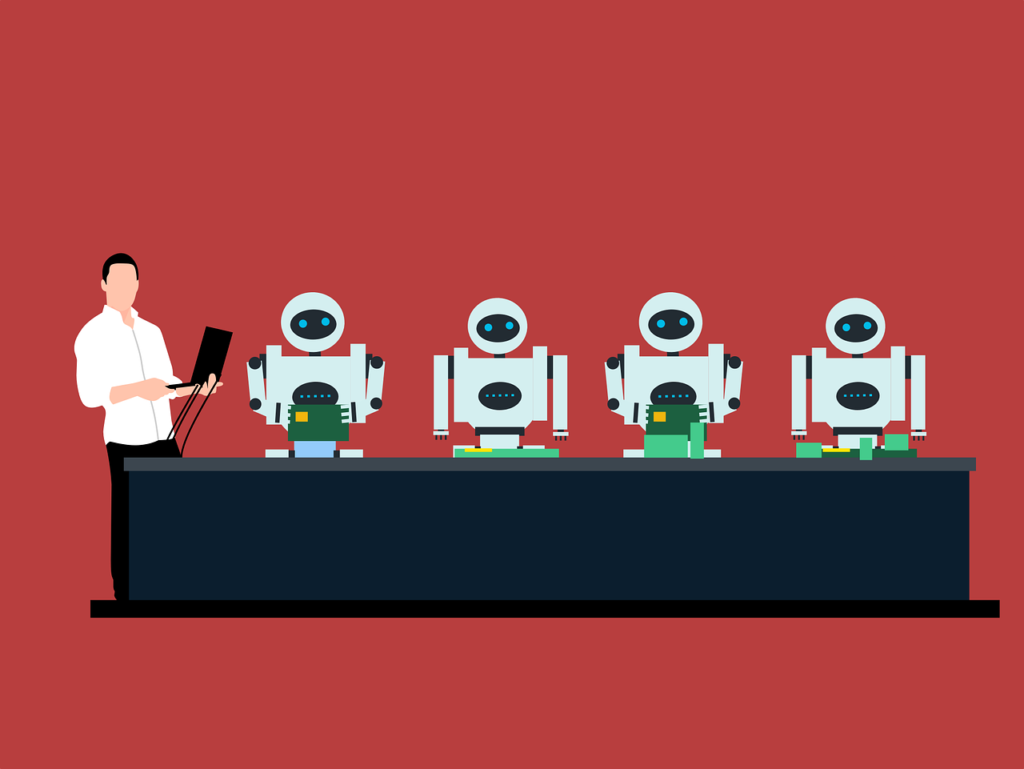Artificial Intelligence (AI) refers to the ability of machines and computer programs to perform tasks that would typically require human intelligence, such as visual perception, speech recognition, decision-making, and problem-solving. AI technologies include machine learning, natural language processing, computer vision, robotics, and others.
Overall, AI has the potential to revolutionise the way businesses operate. It can help businesses improve efficiency, reduce costs, and create new opportunities. The positive impact of AI on businesses is already being felt in various ways including:
- Automation: AI can automate many repetitive and tedious tasks, such as data entry, customer service, and accounting. This can help businesses improve efficiency and reduce costs.
- Personalisation: AI can analyse vast amounts of data to create personalized experiences for customers. For example, AI-powered recommendation engines can suggest products and services based on a customer’s past behaviour and preferences.
- Decision making: AI can analyse data and provide insights that can inform business decisions. This can help businesses identify new opportunities, predict market trends, and manage risk.
- Process optimisation: AI can help businesses optimise complex processes, such as supply chain management, by identifying inefficiencies and suggesting improvements.
- Customer service: AI-powered chatbots can provide 24/7 customer service, which can improve customer satisfaction and reduce response times.
Positive benefits aside, AI also poses challenges, such as the potential for job displacement. AI has the potential to impact jobs in almost every industry, but there are some that are likely to be affected more than others. Here are a few industries where AI is expected to have a significant impact on jobs in the coming years:
- Manufacturing: AI is already being used to automate tasks in manufacturing, such as quality control and predictive maintenance. As AI becomes more advanced, it may replace human workers in certain manufacturing roles.
- Customer service: AI-powered chatbots and virtual assistants are becoming increasingly popular for customer service tasks, which may lead to a reduction in the number of human customer service representatives.
- Healthcare: AI is being used in healthcare to assist with tasks such as diagnosis and treatment planning. While AI is not likely to replace healthcare professionals, it may change the nature of their jobs and require them to develop new skills.
- Finance: AI is already being used in finance for tasks such as fraud detection and portfolio management. As AI becomes more advanced, it may replace some jobs in finance, particularly those that involve repetitive tasks.
As AI becomes more prevalent, workers will need to develop skills that are complementary to AI, rather than replaceable by it. Crucial to these will be the ‘human’ skills that AI cannot (yet!) replicate such as critical thinking and problem-solving, emotional intelligence, interpersonal and communication skills, and creativity and innovation. Important too will be skills such as adaptability and learning agility, and data analysis and interpretation, all of which will be beneficial to roles working alongside AI to get the best out of this new technology.
It’s worth noting that while AI may lead to job displacement in some industries, it is also likely to create new jobs in areas such as AI development and maintenance. It’s also possible that AI will lead to increased productivity and economic growth, which could create new job opportunities in a variety of fields. The rise of AI has created a variety of new business opportunities across industries including a need for AI consulting and development services for businesses wanting to utilise these new technologies, and a demand for AI-enabled products and autonomous systems. One thing that AI is extremely good at is generating a massive amount of data, and that has resulted in a growing need for services that can help businesses manage and analyse that data.
Overall, AI has the potential to revolutionise the way businesses operate. It can help businesses improve efficiency, reduce costs, and create new opportunities. However, AI also poses challenges, such as ethical concerns around data privacy and security, and the potential for job displacement. Businesses that are able to effectively leverage AI while also addressing these challenges will be well positioned to succeed in the future.




